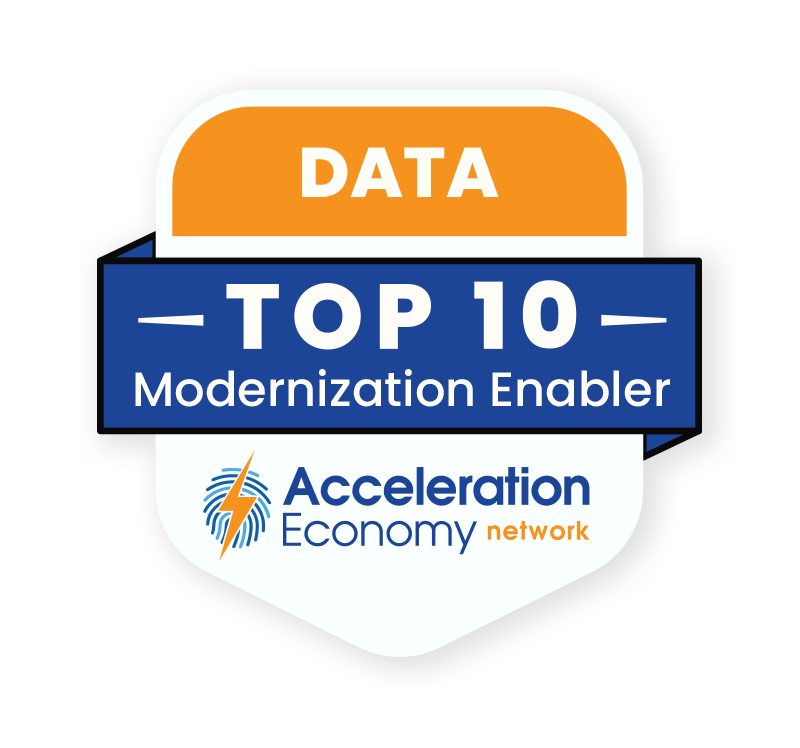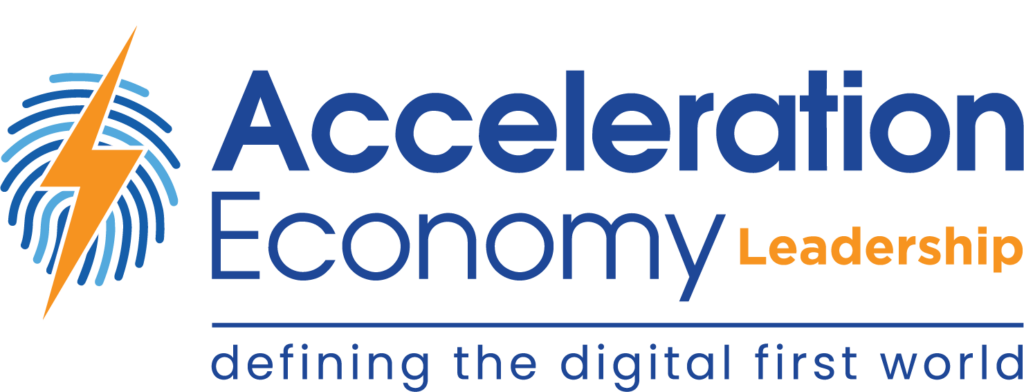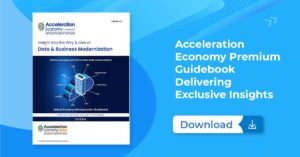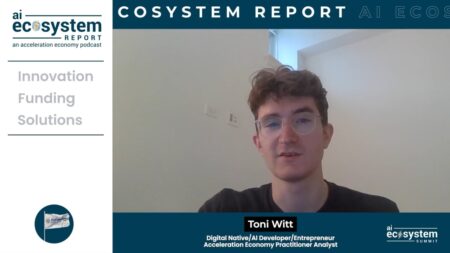The average enterprise company uses more than 200 software applications, according to a recently released report from SaaS Management provider Productiv. And each department has access to between 40 and 60 unique apps, a growing majority running in the cloud. That’s a lot of software generating an enormous amount of data from first-and third-party sources. And don’t look now, but here comes AI and the machines, which will double the amount of data available to businesses by 2025, according to McKinsey & Co.
Organizations and their leaders aren’t suffering from a lack of raw data. Rather, the struggle is how to turn all that customer, business, transactional, and product data from all those internal and external sources, systems, and touchpoints into actionable insights and intelligence. The data insights’ end goals most frequently cited by business and tech leaders include smarter, quicker decision-making, tailored customer experiences, more predictable outcomes, and increased employee productivity and satisfaction.
To hear practitioner and platform insights on how solutions such as ChatGPT will impact the future of work, customer experience, data strategy, and cybersecurity, make sure to register for your on-demand pass to Acceleration Economy’s Generative AI Digital Summit.
Identify the Roadblocks Preventing Insights-Driven Decisions
With all the powerful tools, smart people, and the emergence of AI, what’s holding companies back from capitalizing on the growing amount of data? Our Acceleration Economy analyst advisory work has found the following to be the most common roadblocks cited by business and tech leaders (note, it’s not a lack of technology):
- The absence of a clear, prioritized, and shared enterprise-wide data strategy
- Gaps in the organizational culture where analytics and data-driven decisions are not prioritized or rewarded by executive leadership
- Lack of agreed-upon standards for collecting, analyzing, and distributing meaningful data to the agreed standard
- Minimal data science skills to efficiently and effectively structure, manage, and interpret data
- Low-quality, unusable data due to poor hygiene and governance
How to Turn Your Data Into Actionable Intelligence
Enough of the roadblocks. Let’s get into what leaders can do to turn data into insights and intelligence that leaders and staff can use to make smarter decisions that drive revenue, deliver profitability, and increase efficiency.
Centralize Data While Decentralizing Access
There are thousands of examples of companies purchasing one-off data solutions and treasure troves of data stuck in a system that never gets integrated, shared, and/or adopted across the organization. Whether it’s a case of specific leaders or business units hoarding data or just inefficient data management, data from external and internal sources must be aggregated and synthesized centrally to serve the entire organization to maximize value.
To accelerate their march to insights, leaders should prioritize developing a company-wide data strategy defining why, where, how, what, and when data is used across the organization. This effort starts with taking a complete inventory of all internal and external databases, data sources, data tools, and data processes. It’s fueled by appointing the right leaders from groups across the organization, communicating the plan, incentivizing the teams, and showcasing the value of data to individuals and the business. The best type of “showing value” is when employees have access to new sources of data they can use for smarter decision-making.
Develop a Data-Driven Culture Where Intelligence Use Is Expected and Rewarded
Developing and building a corporate data strategy is required. But nurturing and developing a data-first culture is often what separates a good performance from an excellent performance. According to McKinsey, those organizations that provide access data to their employees perform up to 25% better than their peers. As the CEO of a major retailer shared with me last month, “We shifted from using data and intelligence from a back-office science experiment to a core business discipline. It changed our thinking and our culture on the expectation and value of data that drives insights.”
What does a data-driven culture look like? Here are a few from last year’s Acceleration Economy Summit.
- Starting with the C-suite and across the organization data opens conversations and drives decisions
- Data is used to discover opportunities and drive improvements
- Insights lead to innovation, and teams consistently experiment with new ways of doing business
- Execs prioritize and value data skills and training
- Data is viewed as a business asset and breakthrough insights are rewarded
- Data and insights are so desired that employees fight to be part of data ethics and policy development
Modernize Your Data Management Standards and Framework
If you expect your organization and people to live and act on data and intelligence, the team needs to have the systems, processes, and framework to deliver at scale. The framework instructs the organization on how to deal with the vast amount of unstructured data stored across different platforms. It also details how to standardize data capture, analysis, and interpretation practices to unlock the value of their data. Lastly, the framework identifies the tech, tools, infrastructure, and processes. Here is a “cheat sheet” on the essential data management tools and tech required to derive business insights.
An effective data management framework should drive a modern, automated approach to processing data versus the significant amount of manual data collection, manipulation, analysis, and management that happens in most organizations today. Automation allows the organization to proactively process real-time data — customer, inventory, financial, transactional, and market, among others — to derive insights from millions of relevant data points. Today, AI and machine learning can and will play a vital role in scaling your ability to process data. Visualization and business intelligence tools can then be used for the team to confidently act.
Adopt Clear Governance Strategy and Policies to Ensure Data Quality
Not all data is good or even usable. The oft-repeated phrase “garbage in, garbage out” is a significant problem. Low-quality data quickly erodes a data-driven culture. Even worse, it leads to bad decisions. According to Gartner, poor data quality costs businesses an average of $15 million annually, with costs approaching $200m for enterprises. That’s why it’s important to not treat data governance as a “check-the-box” regulatory or industry compliance task.
Insights and intelligence require governance to ensure data quality, integrity, accuracy, and compliance. The good news is there are tools and defined strategies and policies to strengthen your governance effort. To review what’s included in an effective data governance strategy, here is an Acceleration Economy analysis we put together earlier this year.
The Ability to Turn Data Into Insights Is a Competitive Advantage
Business data is everywhere, inside and outside your organization. Now, the race is on to determine which organizations can manage, synthesize, interpret, and access the zettabytes of data and turn it into actionable insights that drive the business. Those leaders who can harness and act on intelligence will win bigger, and faster.

Which companies are the most important vendors in data? Check out the Acceleration Economy Data Modernization Top 10 Shortlist.
Want more tech insights for the top execs? Visit the Leadership channel:









